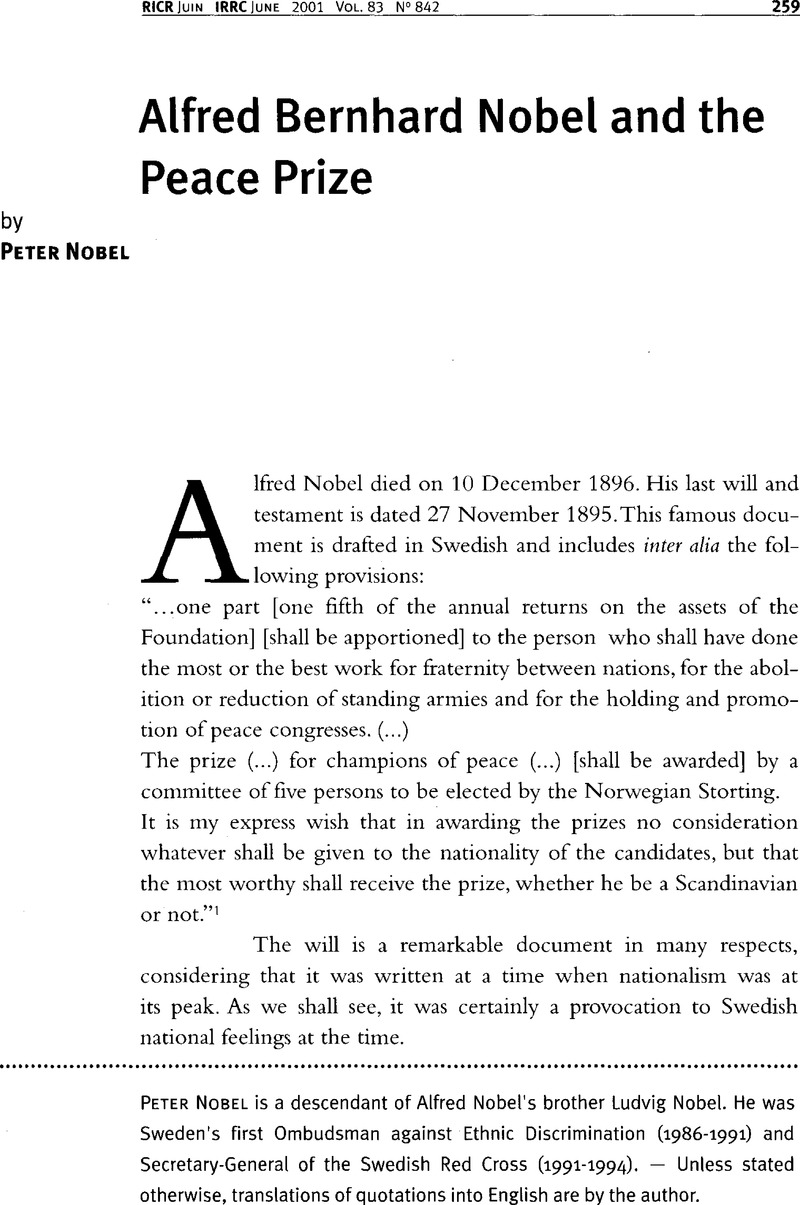Published online by Cambridge University Press: 19 April 2010

l The relevant part of Alfred Nobel's will has been incorporated in the Statutes of the Nobel Foundation (§ l), <www.nobel.se/nobelfoundation/statutes.html>.
2 Sohlman, Ragnar, Ett testamente, Stockholm, 1950, p. 30Google Scholar.
3 Tägil, Sven, “Krig och fred i Alfred Nobels föreställningsavarld”, in Rosen, John (ed.), Alfred Nobel, hans far och hans bröder, Stockholm, 1995, pp. 77–90Google Scholar.
4 Svenskt biografiskt lexikon, Bind 27.131, p. 106.
5 Ibid. About the years in San Remo see Lotti, Giovanni, Nobel a San Remo, San Remo, 1980Google Scholar.
6 Wintersteiner, Marianne, Die Baronin Bertha von Suttner, Wien, 1984, p. 106Google Scholar.
7 On Alfred Nobel and the peace movement see Alfred Nobel och bans släkt, Memorial Publication by the Nobel Foundation, Stockholm, 1926, pp. 216–229Google Scholar.
8 Ibid. — “To my mind, what is wanting is not money but the programme itself. Wishes alone do not ensure peace. The same can besaid of grandiose dinners with grandiose speeches. There would have to be an acceptable project that can be submitted to well-intentioned governments. To call for disarmament is virtually to make oneself ridiculous without helping anyone. To call for the immediate constitution of a court of arbitration means having to contend with a thousand forms of prejudice and turning anyone ambitious against it. In order to succeed, you would have to make do with a more modest start. […] Only then would a gradual advance towards the disarmament that all decent people and almost all governments desire be conceivable. And what if a dispute nonetheless flares between two governments: do you not think that nine times out of ten they will calm down during the compulsory armistice which they would have to observe?” (ICRC translation)
9 op. cit. (note 2).